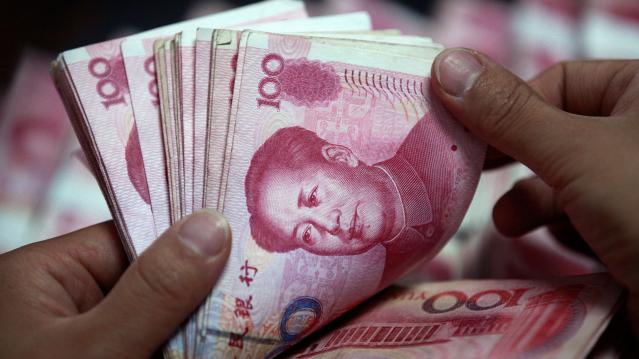Billionaires: 10 Intriguing New Facts About Who’s Getting Rich Now

A new Chinese billionaire was created almost every week in the first quarter of 2015, according to a just-released report by UBS and PwC.
"Asia's billionaires make up 36 percent of self-made billionaire wealth, overtaking Europe for the first time and second only to the U.S.," said Antoinette Hoon, private banking advisory services partner for PwC in Hong Kong. “Looking forward, we expect the region to be the center of new billionaire wealth creation.”
Related: 6 Traits of an Emerging Millionaire: Are You One?
The report, which looked at data for 1,300 billionaires over 19 years, found – unsurprisingly -- that entrepreneurship is a powerful force for wealth creation. “Billionaires: Master architects of great wealth and lasting legacies" also noted that many billionaires are embracing philanthropy to build a legacy.
Here are 10 other findings of the report:
- 917 self-made billionaires generated more than $3.6 trillion of global wealth between 1995 and 2014.
- Of them, 23 percent launched their first business before age 30; 68 percent before turning 40.
- The second-highest number of self-made American billionaires (27.3 percent) in the last two decades came out of the tech sector.
- Finance produced 30 percent of U.S. billionaires, but they aren’t as rich as their counterparts in tech; their average net worth is $4.5 billion, compared with $7.8 billion for tech moneybags.
- In Europe and Asia, self-made billionaires mostly made their money in the consumer industry. Their wealth averages $5.7 billion. Tech entrepreneurs in Europe and Asia were the second-richest group with an average worth of $3.8 billion.
- More than two-thirds of global billionaires are over 60 years old and have more than one child.
- The average age of Asia billionaires is 57, 10 years younger than in the U.S. and Europe.
- About one fourth of Asian billionaires had impoverished childhoods, compared with 8 percent in the U.S. and 6 percent in Europe.
- 60 percent of self-made billionaires in the U.S. and Europe retain their businesses, 30 percent dispose of part of their business via an IPO or trade sale, with 10 percent selling outright.
- In Europe and Asia, billionaires are most likely to create a business dynasty, with 57 percent of European and 56 percent of Asian billionaire families, respectively, taking over the family business when the founder retires. In the U.S., just 36 percent of businesses remain family-run once the founder retires.
Deficit Hits $738.6 Billion in First 8 Months of Fiscal Year

The U.S. budget deficit grew to $738.6 billion in the first eight months of the current fiscal year – an increase of $206 billion, or 38.8%, over the deficit recorded during the same period a year earlier. Bloomberg’s Sarah McGregor notes that the big increase occurred despite a jump in tariff revenues, which have nearly doubled to $44.9 billion so far this fiscal year. But that increase, which contributed to an overall increase in revenues of 2.3%, was not enough to make up for the reduced revenues from the Republican tax cuts and a 9.3% increase in government spending.
Tweet of the Day: Revenues or Spending?

Rep. Kevin Brady (R-TX), ranking member of the House Ways and Means Committee and one of the authors of the 2017 Republican tax overhaul, told The Washington Post’s Heather Long Tuesday that the budget deficit is driven by excess spending, not a shortfall in revenues in the wake of the tax cuts. The Wall Street Journal’s Kate Davidson provided some inconvenient facts for Brady’s claim in a tweet, pointing out that government revenues as a share of GDP have fallen significantly since 2015, while spending has remained more or less constant.
Chart of the Day: The Decline in IRS Audits

Reviewing the recent annual report on tax statistics from the IRS, Robert Weinberger of the Tax Policy Center says it “tells a story of shrinking staff, fewer audits, and less customer service.” The agency had 22% fewer personnel in 2018 than it did in 2010, and its enforcement budget has fallen by nearly $1 billion, Weinberger writes. One obvious effect of the budget cuts has been a sharp reduction in the number of audits the agency has performed annually, which you can see in the chart below.
Number of the Day: $102 Million

President Trump’s golf playing has cost taxpayers $102 million in extra travel and security expenses, according to an analysis by the left-leaning HuffPost news site.
“The $102 million total to date spent on Trump’s presidential golfing represents 255 times the annual presidential salary he volunteered not to take. It is more than three times the cost of special counsel Robert Mueller’s investigation that Trump continually complains about. It would fund for six years the Special Olympics program that Trump’s proposed budget had originally cut to save money,” HuffPost’s S.V. Date writes.
Date says the White House did not respond to HuffPost’s requests for comment.
Americans See Tax-Paying as a Duty

The IRS may not be conducting audits like it used to, but according to the agency’s Data Book for 2018, most Americans still believe it’s not acceptable to cheat on your taxes. About 67% of respondents to an IRS opinion survey “completely agree” that it’s a civic duty to pay “a fair share of taxes,” and another 26% “mostly agree,” bringing the total in agreement to over 90%. Accounting Today says that attitude has been pretty consistent over the last decade.



